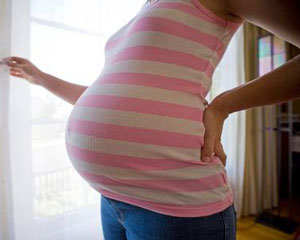
A large part of the Zimbabwean population remains extremely hostile to abortion rights and efforts to decriminalise the Act.
By Phyllis Mbanje
Statistics show that at least 20 000 women are dying every year from complications associated with abortion while more than 80 000 terminate their pregnancies illegally.
Abortion in Zimbabwe is only legal under Section 4 of the Termination of Pregnancy Act. The act states that abortion is legal only when the life of the mother and her physical health is endangered or where there is a serious risk that the child to be born will suffer from physical or mental defects of such a nature that it will be permanently or seriously handicapped.
The Criminal Law Codification and Reform Act states that: “Any person who intentionally terminates a pregnancy or terminates a pregnancy by conduct which he or she realises involves a real risk or possibility of terminating the pregnancy shall be guilty of unlawful termination of pregnancy and liable to a fine not exceeding level ten or imprisonment for a period not exceeding five years or both.” But research, mostly by non-governmental organisations, has revealed shocking statistics of women who die while trying to abort in backyard operations which are rife countrywide.
A report compiled by 27 NGOs in Zimbabwe, revealed that while more than 20 000 women died each year because of unsafe abortions, the society was adamantly against efforts to create room for safer abortion methods.
For years there has been highly impassioned debates on whether abortion should be decriminalised or not and when the new constitution was crafted, the piece of legislation remained.
This is despite the fact that there has been a marked increase in baby dumping and cases of infanticide with abortions contributing over 5% of maternal deaths.
- Are restrictive abortion laws good for women’s reproductive health?
- Are restrictive abortion laws good for women’s reproductive health? (Part 2)
- Amend abortion laws: Experts
- Youths collaborate towards accessible reproductive healthcare
Keep Reading
Some human rights organisations have raised furore over the criminalisation of the act which has seen many women seeking to do it under unorthodox and unsafe conditions for fear of legal reprisal. Even though the government has relented and now says women can seek post abortion care without being reported to the police, many still feel that the law should be repealed.
In 2014, over 2 000 young women aged 17 to 25 years sought post-abortion care services at Harare Hospital while at Parirenyatwa Hospital, the monthly average of those seeking such care increased from about 70 to over 100 women a month in the past two years, most of them aged from 17 to 26 years.
Zimbabwe is largely a Christian nation and issues of morality have been used to thwart whatever arguments that have been raised by both medical personnel and the activists who are seeking safer ways of abortions.
Presenting oral evidence before the Parliamentary Portfolio Committee on Millennium Development Goals 4 and 5 last year, Health and Child Care secretary, Gerald Gwinji, argued that decriminalising abortion may be one of the ways to help curb maternal mortality.
Practising gynecologist and obstetrician Evans Murukutwa who operates in Avondale said where abortion is permitted, it is generally safe, and where it is highly restricted, it is typically unsafe. “Permissive abortion laws are associated with fewer negative health consequences,” he said.
However talk show host Rebecca Chisamba commonly known as Mai Chisamba said the debates were useless if they did not address the root cause of illegal abortion.
“We are a people with values that we uphold and abortion is not part of it. What we should be aiming for is to address the issues of sex education. Parents should talk to their children on these issues and repercussions thereof,” she said.
Mai Chisamba said many people did not want to discuss sex with their children and left it to peers and social media to provide the information which might be biased and lacking facts.
Netty Musanhu, the director of Musasa Project said abortion was not socially acceptable given the strong religious and cultural notions which consider it as murder.
“We have a culture which considers the unborn child as more important so even though the termination of pregnancy allows for abortion in limited cases like rape, very few survivors are able to access it because of family attitudes,” she said.
She said as a result the majority of rape victims carried their pregnancies to full term because of the delays in the system. “However if you look at the age of some of the victims, they are too young to carry the pregnancy to full term and this contributes to a rise in maternal mortality,” she noted.
In neighbouring South Africa, the Choice of Termination of Pregnancy Act was changed in 1997, providing abortion on demand to any woman, as long as the pregnancy was less than 20 weeks. Following this, the country now has the lowest abortion rate of at 15 per 1 000 women while most African countries are pegged at 29 per 1 000.
According to Guttmacher Institute, an American organisation which advances sexual and reproductive health and rights, nearly half of all abortions worldwide are unsafe, and nearly all unsafe abortions (98%) occur in developing countries. In these same countries, 56% of all abortions are unsafe, compared with just 6% in the developed world where facilities are in place where women can go and terminate their unwanted pregnancies safely.










